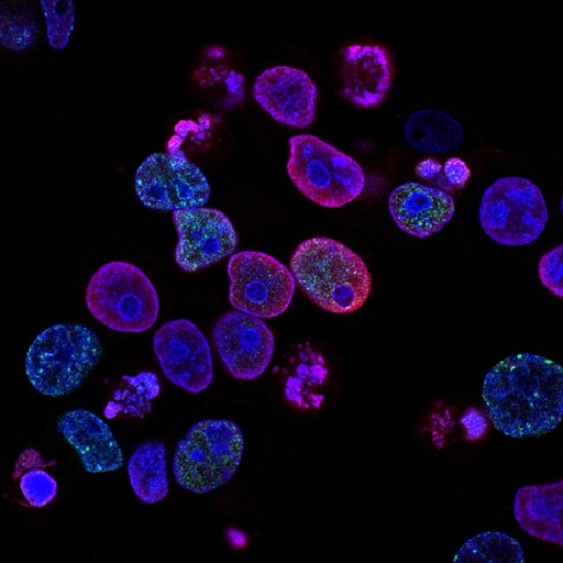Insulin-like growth factor 1 (IGF-1) is a prominent growth factor which conducts many of the growth-promoting effects of growth hormone (GH) through GH’s stimulation of IGF-1 release from the liver.1. IGF-1 signalling promotes growth and spread of cancer and drugs have been developed to target the IGF-1 receptor (IGF1R) to reduce IGF-1 signalling, although ineffective due to resistance to the drugs being developed in patients2. IGF-1 is designated to be a risk factor for prostate cancer and high serum levels of IGF-1 are associated with a variety of different cancers2. However, due to its growth promoting effects, including in the brain, reduced IGF-1 signalling in the brain is associated with increased Alzheimer’s disease (AD) and dementia risk, cognitive decline, anxiety and depression2 suggesting the trade off between cognitive function and cancer risk.
Mice with reduced serum IGF-1 have cognitive deficits which are reversed when IGF-1 is administered to the mice2. Both the insulin receptor (IR) and the IGF1R stimulate cell division and therefore also cancer growth2. Learning and memory requires insulin/IGF-1 signalling and increased IGF-1 was correlated to improved memory and increased volume of the hippocampus2. Furthermore, in Parkinson’s disease (PD) patients who had low serum IGF-1 levels, they had poorer performance on tasks testing cognitive function2. However, interestingly IGF-1 may also slow clearing of beta-amyloid plaque which contributes to AD2, but it seems from the evidence that IGF-1 is in general significantly pro-cognition, pro-neurogenesis and neuroprotective.
A clear example of this trade off is the reduced AD risk amongst cancer patients, and also that older cancer patients had superior memory with lower rate of decline of memory function2. Thus, it seems safe to extrapolate that IGF-1, like most things, has benefits and risks associated with it and that there is no simple way to be “healthy” by manipulating IGF-1 through lifestyle changes such as fasting and energy restriction to lower its serum concentrations, as reducing serum concentrations may have unintended cognitive consequences making someone cognitively “unhealthy”.
***
References:
- Laron Z. (2001). Insulin-like growth factor 1 (IGF-1): a growth hormone. Molecular pathology : MP, 54(5), 311–316. https://doi.org/10.1136/mp.54.5.311
- Rosenzweig S. A. (2020). The Continuing Evolution of Insulin-like Growth Factor Signaling. F1000Research, 9, F1000 Faculty Rev-205. https://doi.org/10.12688/f1000research.22198.1
***




































